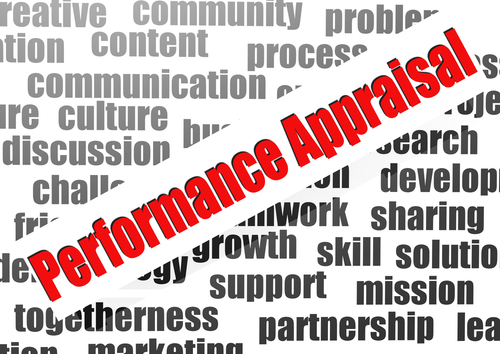Ah, the annual (or semiannual) performance appraisal. One of the few rituals of work life that’s loathed in almost equal measure by employees, managers, and HR alike.
 |
On paper, at least, the performance review process has a lot going for it. It makes sense to carve out time to really look in-depth at an employee’s performance over the past year, as well as to look forward to goals for the year ahead from an organizational standpoint and an employee development standpoint.
In an ideal world, I imagine the performance review meeting playing out a lot like one of those General Mills International Coffee commercials from the 1980s: Manager and employee in a relaxed setting, steamy coffees in hand, talking frankly yet animatedly about past triumphs and upcoming challenges.
As with so many things in HR, however, performance appraisals never quite work in real life the way they’re meant to. In real life, you’re more likely to wind up with the following:
- You pester your busy managers, repeatedly, to get their *^#@#^*^#! reviews in before the deadline.
- Everyone (like the children in Garrison Keillor’s fictitious Lake Wobegon) is “above average”—even the guy who set the entire first floor ablaze 3 months ago due to an entirely preventable mishap involving a sticky bun and the break room toaster.
- The reviews are filled with meaningless platitudes like “team player” … “exceeds expectations” … “goes the extra mile” ….
- Everyone gets the same 2.5% pay increase, no matter how stellar (or abysmal) the performance review was.
- Managers and employees alike skim the surface of performance and personality issues, afraid to offend or, in the case of managers, jump-start a bias lawsuit against the company.
- By the time the annual or semiannual review rolls around, everyone has forgotten the goals that were set out last time around. Alternately, the company has changed so much in the interim that said goals are no longer relevant (e.g., Jim’s ability, or lack thereof, to build the Mexico business is now moot as the Mexico division was sold off late last year).
- Employees and managers “save up” comments and feedback for the review meeting. By the time the meeting happens, the comments and feedback are either stale or forgotten entirely. As an added bonus, an employee is sometimes blindsided by a negative bit of feedback his or her manager has been sitting on for the better part of a year.
Sound familiar? If so, take heart—you are most assuredly not alone. Which is why so many companies are starting to do the previously unthinkable: Ditch the annual performance review entirely.
